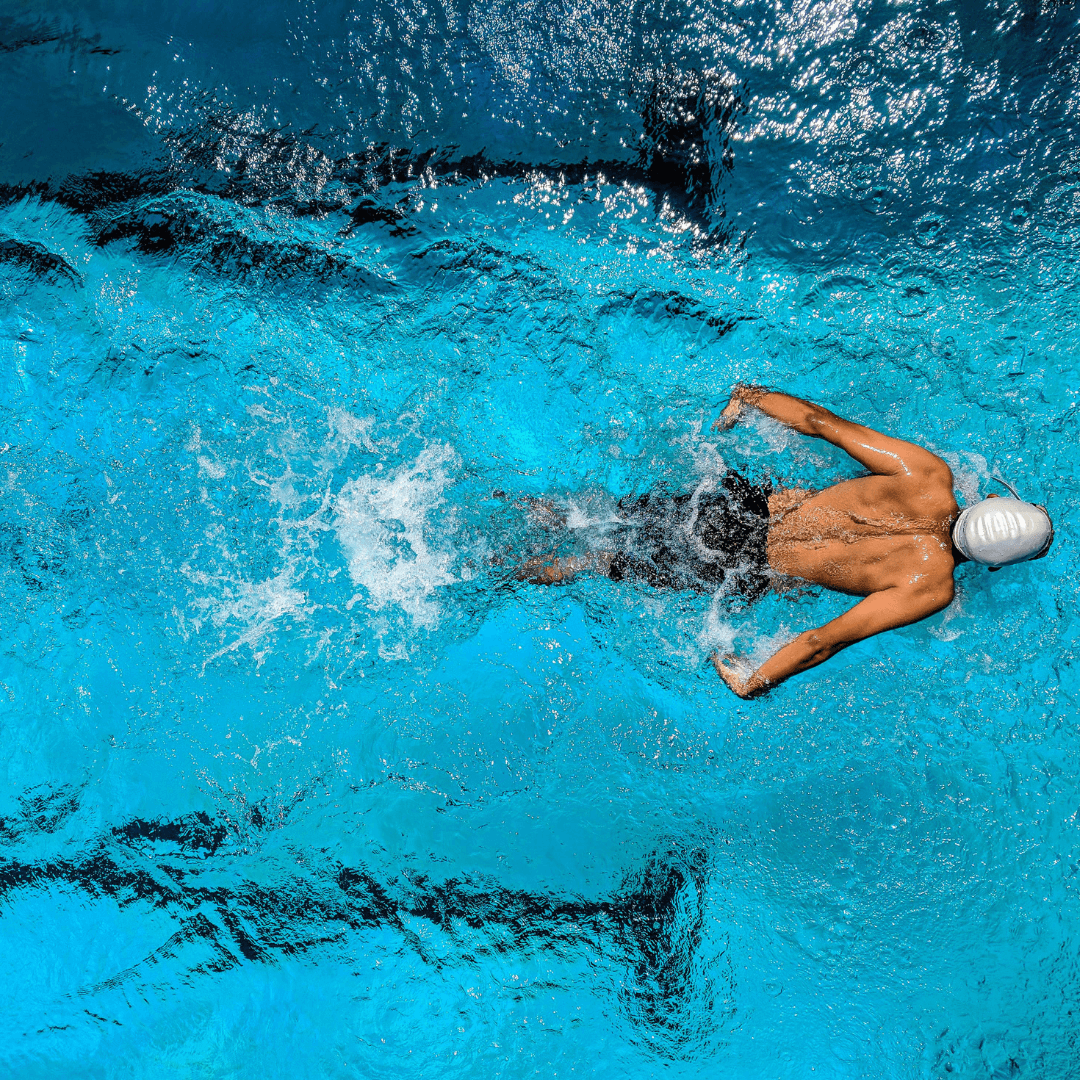How Probiotics Support Performance And Recovery

The gut microbiome plays a vital role not just in gut health, but in whole body health. As more people focus on fitness through activities like running, strength training, and Pilates, there’s growing interest in how gut health influences performance, recovery, and resilience. Read more to learn about the link between gut health and athletic performance, and discover what current studies say about the role of gut health supplements and probiotics for athletes.
The emerging gut–athlete link
Ongoing research suggests there’s a strong connection between the gut and key processes related to athletic performance, including nutrient absorption, inflammation, recovery, immune function, and even mental health through the gut-brain axis.
Nutrient absorption and energy production
The gut microbiome supports the breaking down of carbohydrates and proteins, producing short-chain fatty acids like butyrate, a key source of energy for athletes. Increased levels of butyrate-producing bacteria, such as Clostridiales, Roseburia, Erysipelotrichaceae, and Faecalibacterium, have been linked to improved VO2 max and endurance 1,2. There have also been links between the gut microbiota and protein absorption, which can influence body composition, physical condition, and sports performance 3.
Inflammation regulation and recovery
Moderate exercise has been linked to increasing microbial diversity and promoting anti-inflammation, whereas excessive exercise may cause an imbalance of the microbiome (dysbiosis), increase gut permeability, and lead to chronic inflammation 4. In a clinical study of female individuals, half of whom were endurance runners and half were healthy, age-matched controls, they found that prolonged and intense endurance training was linked to gut dysbiosis, characterised by lower microbial diversity and increased potentially pro-inflammatory bacteria 4.
Immune system support
The gut microbiome plays a key role in immune regulation and also mucosal immunity. There’s evidence to suggest that athletes who have a diverse and stable gut microbiome have been shown to experience fewer upper respiratory tract infections (URTIs) and less downtime due to illness 1.
Mental health and stress response
The gut microbiota communicates with the brain, influencing mood, stress response, and cognitive function. Bacteria in the gut produce neurotransmitters such as serotonin that influence stress levels and mental resilience, which are essential factors for athletes to consider 5.
Exercise and the microbiome
Different types and intensities of exercise significantly influence the gut microbiome:
- Moderate to vigorous anaerobic and resistance exercise - Running, cycling, and strength training have been linked to increased microbial diversity and abundance of beneficial gut bacteria. These include bacteria that produce short-chain fatty acids like Faecalibacterium prausnitzii, which support gut barrier integrity, immune function, and metabolic health 6.
- Exercise intensity and duration - Studies have shown that moderate to high-intensity exercise for 30 to 90 minutes, 3 to 5 times per week over 8 weeks, is likely to increase microbial diversity and beneficial taxa. Excessive or prolonged high-intensity exercise has been linked to increased gut permeability, but can also stimulate beneficial changes in the microbiota 4,7.
- Athletic compared to sedentary lifestyles - Athletes tend to show greater gut microbial diversity when compared to sedentary individuals. This diversity is linked to increased levels of beneficial bacteria like Faecalibacterium, Bacteroides, and Prevotella, and increased production of short-chain fatty acids. Sedentary lifestyles have been linked to lower gut microbial diversity and higher abundance of pro-inflammatory bacteria, which can contribute to increased risk of chronic disease 8.
Probiotics for athletes: what does the research say?
Probiotics are live microorganisms that may have benefits for athletic performance and recovery by supporting gut health, with an abundance of research into their beneficial effects ongoing:
Immune function and inflammation
- A pilot study reported that a multi-strain probiotic reduced inflammatory markers in wheelchair athletes compared to those who received prebiotics 9.
- Another study found that Bifidobacterium animalis subsp. Lactis and Lactobacillus acidophilus combined with maltodextrin stabilised immune responses post-marathon in athletes compared to those who received maltodextrin only 10.
- Lactobacillus plantarum PS128 was studied in a clinical trial of triathletes, where reduced oxidative stress, reduced pro-inflammatory cytokines, and increased anti-inflammatory cytokines were seen in the probiotic group compared to placebo 11.
Gut barrier and URTIs
- A study carried out in individuals who engaged in endurance-based physical activities in the winter found that the number of URTI episodes was significantly higher in the placebo group compared to those who took daily Lactobacillus casei Shirota 12.
- Also, a study conducted on cyclists found that Lactobacillus fermentum PCC significantly reduced the severity of gastrointestinal symptoms at higher training loads in male participants compared to the placebo group 13.
Performance
- A trial carried out in endurance athletics found that a multi-strain probiotic including Lactobacillus, Bifidobacterium, and Streptococcus strains increased the running time to fatigue in heat compared to the placebo group 14.
- Another study carried out in runners found that Bifidobacterium longum subsp. longum OLP-01 significantly increased running distance and improved gut microbiota composition 15.
Plant-based gut health strategies
Gut health and athletic performance may be supported by plant-based nutrition and gut health supplements. Diets rich in fermented foods, fibres, and prebiotics have been shown to improve microbiome diversity, reduce digestive discomfort, and support metabolic health. A study in male water polo players found that those who received prebiotics (barely, malt, oatmeal) and probiotics (including Lactobacillus strains) saw significant gains in skeletal muscle mass, body cell mass, arm circumference, and protein mass, and increases in butyrate-producing bacteria when compared to the control group 16.
Applying the science: supporting athletes with gut health
By integrating gut health into sports nutrition, there’s potential to support athletic performance, immune resilience, and recovery. As healthcare professionals, it’s worth considering screening athletes for gut-related symptoms like frequent illness, digestive discomfort, and prolonged recovery times, and assessing dietary patterns that may affect microbial balance. When recommending probiotics for athletic performance, it’s essential to provide evidence-backed interventions, potentially alongside prebiotic-rich whole foods. For complex cases or if symptoms persist, it may be necessary to refer to a sports dietician or gastroenterologist.
Supporting gut health isn’t just beneficial for digestion, it’s a powerful way of supporting the whole body, especially when it comes to athletic performance, recovery, and endurance.
References
- O’Brien MT, O’Sullivan O, Claesson MJ, Cotter PD. The Athlete Gut Microbiome and its Relevance to Health and Performance: A Review. Sports Med. 2022 Dec;52(S1):119–28.
- Estaki M, Pither J, Baumeister P, Little JP, Gill SK, Ghosh S, et al. Cardiorespiratory fitness as a predictor of intestinal microbial diversity and distinct metagenomic functions. Microbiome. 2016 Dec;4(1).
- Fritz P, Fritz R, Bóday P, Bóday Á, Bató E, Kesserű P, et al. Gut microbiome composition: link between sports performance and protein absorption? J Int Soc Sports Nutr. 2024 Dec 31;21(1).
- Morishima S, Aoi W, Kawamura A, Kawase T, Takagi T, Naito Y, et al. Intensive, prolonged exercise seemingly causes gut dysbiosis in female endurance runners. J Clin Biochem Nutr. 2021 May 1;68(3):253–8.
- Dalton A, Mermier C, Zuhl M. Exercise influence on the microbiome–gut–brain axis. Gut Microbes. 2019 Sep 3;10(5):555–68.
- Monda V, Villano I, Messina A, Valenzano A, Esposito T, Moscatelli F, et al. Exercise Modifies the Gut Microbiota with Positive Health Effects. Morishita R, editor. Oxid Med Cell Longev. 2017 Jan;2017(1).
- Boytar AN, Skinner TL, Wallen RE, Jenkins DG, Dekker Nitert M. The Effect of Exercise Prescription on the Human Gut Microbiota and Comparison between Clinical and Apparently Healthy Populations: A Systematic Review. Nutrients. 2023 Mar 22;15(6):1534.
- Xu L, Li W, Ling L, Zhang Z, Cui Z, Ge J, et al. A Sedentary Lifestyle Changes the Composition and Predicted Functions of the Gut Bacterial and Fungal Microbiota of Subjects from the Same Company. Curr Microbiol. 2023 Dec;80(12).
- Valido E, Capossela S, Glisic M, Hertig-Godeschalk A, Bertolo A, Stucki G, et al. Gut microbiome and inflammation among athletes in wheelchair in a crossover randomized pilot trial of probiotic and prebiotic interventions. Sci Rep. 2024 Jun 4;14(1).
- Batatinha H, Tavares-Silva E, Leite GSF, Resende AS, Albuquerque JAT, Arslanian C, et al. Probiotic supplementation in marathonists and its impact on lymphocyte population and function after a marathon: a randomized placebo-controlled double-blind study. Sci Rep. 2020 Nov 2;10(1).
- Huang HY, Tsao SP. Long Term Supplementation of Lactobacillus plantarum PS128 Attenuated High-Intensity Exercise Induced Acute-Phase Inflammation in Triathletes. Curr Dev Nutr. 2020 Jun;4:nzaa062_021.
- Gleeson M, Bishop NC, Oliveira M, Tauler P. Daily Probiotic’s (Lactobacillus casei Shirota) Reduction of Infection Incidence in Athletes. Int J Sport Nutr Exerc Metab. 2011 Feb;21(1):55–64.
- West NP, Pyne DB, Cripps AW, Hopkins WG, Eskesen DC, Jairath A, et al. Lactobacillus fermentum (PCC®) supplementation and gastrointestinal and respiratory-tract illness symptoms: a randomised control trial in athletes. Nutr J. 2011 Dec;10(1).
- Shing CM, Peake JM, Lim CL, Briskey D, Walsh NP, Fortes MB, et al. Effects of probiotics supplementation on gastrointestinal permeability, inflammation and exercise performance in the heat. Eur J Appl Physiol. 2014 Jan;114(1):93–103.
- Lin CL, Hsu YJ, Ho HH, Chang YC, Kuo YW, Yeh YT, et al. Bifidobacterium longum subsp. longum OLP-01 Supplementation during Endurance Running Training Improves Exercise Performance in Middle- and Long-Distance Runners: A Double-Blind Controlled Trial. Nutrients. 2020 Jul 2;12(7):1972.
- Fritz P, Fritz R, Bóday P, Bóday Á, Bató E, Kesserű P, et al. Gut microbiome composition: link between sports performance and protein absorption? J Int Soc Sports Nutr. 2024 Dec 31;21(1).



